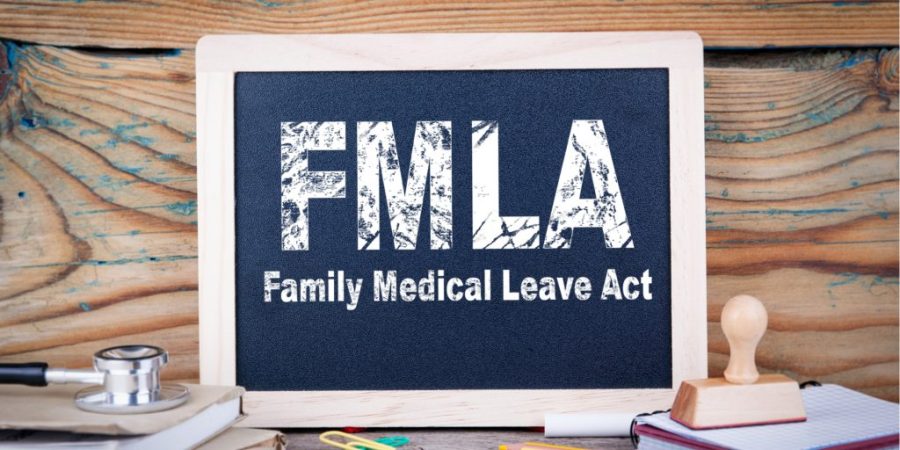
If you’re considering going to rehab, you probably have a few concerns. Among those, one of the biggest is most likely, “How can I keep my job while I go to rehab?” But there is good news on that front—the Family and Medical Leave Act, or FMLA, already exists to protect workers’ jobs while they address major life events like family emergencies, medical issues, and even addiction treatment. And if you’re currently employed in the United States, then there’s a good chance that FMLA for rehab can help you.
If you’re ready to start addiction treatment in Ohio but you’re not sure how to keep your job safe, keep reading to learn everything you need to know about FMLA for rehab in Ohio.
Table of Contents
Can I Use FMLA for Rehab in Ohio?

The Family and Medical Leave Act is a federal law that was passed in 1993. This means that it applies equally to all states, and it protects the jobs of certain employees who need time off for situations that do not allow them to continue working.
The FMLA law allows covered employees to take up to 12 weeks off work. However, while the employee’s job is guaranteed during this time, there is no requirement that the individual continue to be paid. So even though FMLA for rehab can keep your job safe while you attend an alcohol or drug rehab, you may need to have enough money and resources to go without pay during that time, unless your employer has a more generous policy.
With that in mind, what situations does FMLA actually cover? There are many circumstances covered under this law, but the most commonly cited are:
- Childbirth
- Taking care of a loved one after a medical incident
- Receiving care for a chronic illness
- Enrolling in a mental health treatment program
It’s easy to read that list and wonder, “Can I use FMLA to go to rehab?” And while it’s not specifically listed, treatment for a substance use disorder is covered under FMLA law as care for both a chronic illness and a mental health issue. This means that you can use FMLA for rehab, provided that you work for a covered employer. But who qualifies under FMLA policy?
Do I Qualify for FMLA?
There are two requirements to use FMLA for rehab: First, you must work for a covered employer, and then you must be a covered employee for that employer. The Department of Labor reports that the requirements for an organization to be a covered employer depend on the nature of that organization. For example, private employers are covered under FMLA if they have more than 50 employees who worked 20 or more weeks in the past year, whereas public agencies and schools are automatically covered employers regardless of their size.
So, what makes someone a covered employee under FMLA? First, you must work for a covered employer, and then you are required to:
- Have worked for your current employer for at least 12 months
- Worked at least 1,250 hours during the past 12 months
- Be employed at a location where the covered employer has at least 50 employees in a 75-mile radius
If you meet the above requirements, then you can use FMLA for rehab in Ohio or any other state. But even if you don’t meet these qualifications, it may still be a good idea to pursue immediate addiction treatment.
When you’re living with an active addiction, you are much more likely to have trouble at work and become unemployed. So even if you have to leave your current job, you may still be making the best move for yourself and your future. This is doubly true when you consider that some of the most common signs of addiction are issues that greatly affect quality of life, like:
- Suicidal thoughts or actions
- Trouble sleeping
- Emotional highs and lows
- Fractured personal relationships
- Financial distress
Given these distressing symptoms, professional addiction treatment is often not something that anyone can afford to put off. So while using FMLA for rehab is a great way to safeguard your employment, going to a rehab may be the only way to protect and take care of yourself.
Your Drug or Alcohol Addiction Treatment Options

Once you’ve secured leave from work, it’s time to look at the different ways that you can get help for your addiction. And the good news is that when you come to The Woods at Parkside, we offer a full continuum of care across all stages of addiction.
For example, most people start with our medical detox program. At this level of care, you are given 24/7 medical supervision to ensure that you are safe and as comfortable as possible while detoxing from drugs or alcohol. And that’s important, because withdrawal symptoms can range from uncomfortable to deadly, and they greatly increase your risk for relapse if you don’t have professional support.
From there, most individuals transfer to an inpatient addiction program. This can be for addiction-only, where there is not a co-occurring disorder, or for a dual diagnosis issue where addiction is accompanied by a mental health issue. In either case, having professionals who understand what you’re going through and how to get you into recovery will make all the difference.
Many people also choose to end their addiction treatment with some type of outpatient programming, or even by stepping down using every available treatment program. These can help people take what they learned in inpatient treatment and use ongoing support to apply it to their everyday lives. And having continued support can substantially lower your risk of relapse during the vulnerable early stages of recovery.
Once you’ve decided to use FMLA for rehab, the only thing left to do is start your recovery journey. Our admissions specialists are ready to help you take this crucial step; just call them at 614-471-2552 or submit your questions online.
The post How FMLA for Rehab Can Protect Your Job While You Get Help appeared first on The Woods At Parkside.
Source
Original Author: Heather Ware

